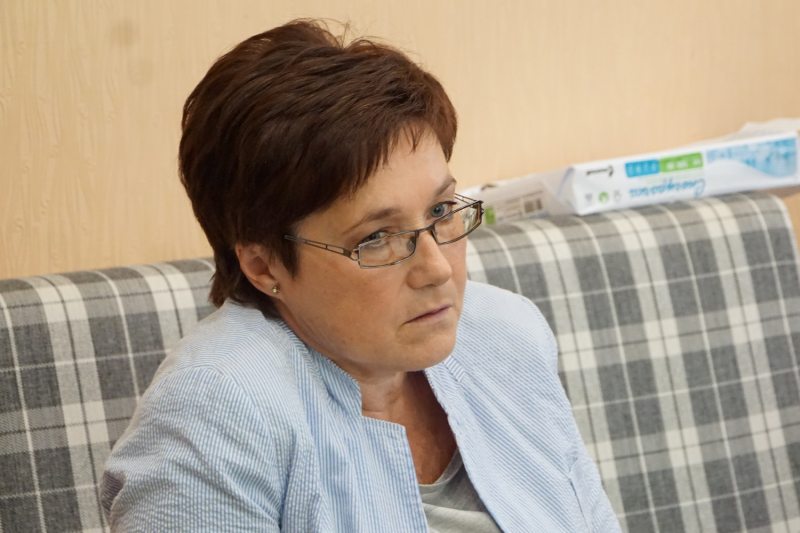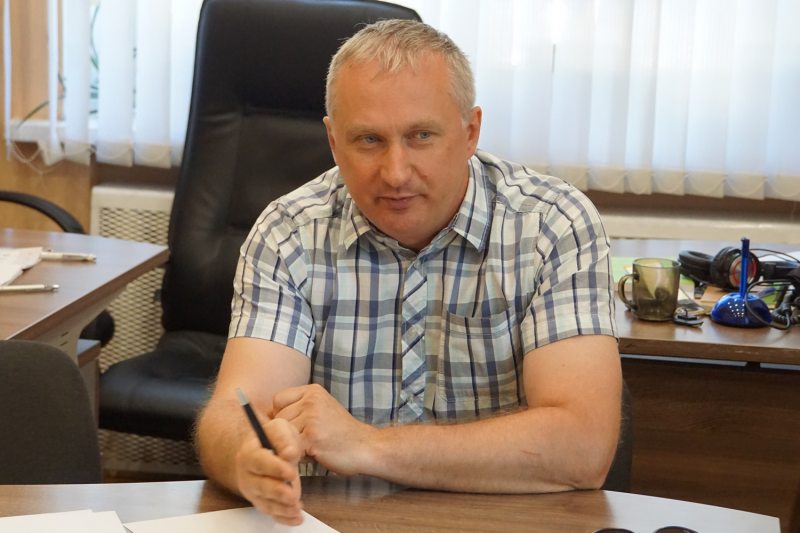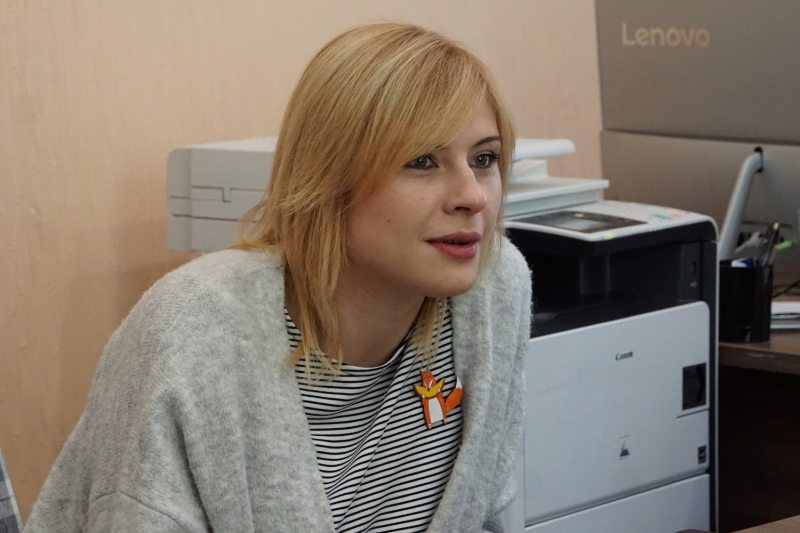HRDs set to monitor implementation of recommendations by UN Committee against Torture
Representatives of a coalition of human rights organizations, which in late April presented an alternative report to the UN Committee against Torture, have commented on the Concluding observations of the Committee following the 63rd session of the Committee.
The document consists of 63 items, which include two positive aspects and 55 comments on the non-fulfillment or inadequate fulfillment by Belarus of the Convention against Torture and Other Cruel, Inhuman or Degrading Treatment or Punishment.
The human rights activists believe that members of the Committee were quite interested in the alternative report and the opinion of the human rights community in Belarus, notably well briefed on the situation of torture in the country.
The position of the state was avoiding answers to uncomfortable questions, and, in addition, the delegation apparently included representatives of state structures, which were not independent in their judgments, but simply transmitted what they had been ordered to say.
Following the results of the 63rd session of the Committee, the human rights coalition noted the following significant observations by the UN treaty body:
- The Committee reiterated the need to include torture as a separate crime in the country’s legislation, so that the definition covered all the elements of torture contained in article 1 of the Convention.
“It is good that the Committee did not mention as a positive side the introduction of a comment to the Criminal Code regarding the definition of torture, which the government has been seeking to sell as the real criminalization of torture since 2015,” Viktoryia Fiodarava, chair of Legal Initiative, said in a comment.
- The Committee noted that public monitoring commissions are not independent, do not have the right to confidential communication with prisoners and a number of other rights, which would allow to exercise effective control over the rights of prisoners.
“The active PMCs do not control the situation of prisoners and other categories of persons deprived of their liberty in Belarus. The government was also reminded about it, that PMCs cannot be regarded as a universal mechanism, because it covers only one segment — prisoners. While the position of the others — inmates of pre-trial prisons, detention centers, closed penal schools, psychiatric institutions — is never controlled by the civil society,” Pavel Sapelka of the Human Rights center "Viasna" said.
- The Committee recommended to “strengthen the independence of the PMCs and provide them with the ability to carry out unannounced visits to all parts of all places of deprivation of liberty, including temporary and pre-trial detention facilities, LTPs, administrative detentions as well as psychiatric institutions, and to speak privately with any person deprived of his or her liberty.” These PMCs should include “diverse and qualified legal and medical professionals familiar with the relevant international standards, as well as representatives of independent civil society organisations and human rights experts.”
- With regard to the death penalty, the Committee recommended to “urgently consider the establishment of a moratorium on executions, with a view to abolishing the death penalty, commute death sentences to prison sentences, and consider ratifying the Second Optional Protocol to the International Covenant on Civil and Political Rights.”
- LTPs (Labor Treatment Profilactoria for the Alcohol and Drug-addicts) are nothing but a form of deprivation of liberty in respect of those persons who have not committed a criminal offense. The Committee against Torture supported the position of the human rights defenders and requested the State to abolish all forms of “treatment through labor” detentions in LTPs, as well as to “provide more information, including current statistics on those currently subject to this form of detention, the reasons for their detention, the means of challenging such detention and the safeguards put in place to prevent torture and ill-treatment in these facilities.”
- The Committee regrets that the State party has “failed to conduct an impartial and effective investigation of several unresolved cases of enforced disappearances in particular of the former Minister of the Interior, Yury Zakharenko, the former First Secretary Chairman of the dissolved Belarusian Parliament, Viktor Gonchar and a businessman, Anatoly Krasovsky. It urges the State party to “undertake thorough, impartial and effective investigations by an independent body into all outstanding cases of alleged enforced disappearances and prosecute the perpetrators and provide effective remedies and redress to the families of the victims, including fair and adequate compensation, and as full rehabilitation as possible, including any necessary psychological, social or financial support.”
- In addition, the Committee regrets that the State party “has not implemented its previous recommendation to undertake effective investigations into the disbarment and harassment of lawyers representing individuals who complained of torture after being detained in connection with the events of 19 December 2010.” The Committee is also “deeply concerned at new allegations that several lawyers for defendants in the “mass riots” cases of March 2017 faced a mandatory extraordinary review of their licences.” The Committee recommends that the State party “strengthen the independence of the bar association from the Ministry of Justice and ensure its self-government.”
- The Committee noted with regret that Belarus does not interact with the UN Human Rights Committee and other treaty bodies, does not implement the recommendations and Views the HRC adopts on individual communications.
The human rights activists stress a formal approach by the State to the reporting procedures.
“The impression is that it behaves like a student who did not learn the subject, but passed the exam and is happy about it, because he cheated the examiner. But the essence of reporting is completely different,” Raisa Mikhailouskaya, chair of the Belarusian Documentation Center, said.
The human rights defenders are satisfied with the concluding observations, as they affect all the sensitive issues they covered in their report.
“We have done a lot of preliminary work and objectively showed what the authorities carefully hid. And that is our mission — to alternately show the situation of torture in the country. Now our task is to monitor the implementation of the recommendations by the State. This whole procedure is aimed at systemic changes, to which we are committed, too,” Mikhailouskaya said.
“We will do some steps to advocate the recommendations made by the Committee. The Human Rights Center "Viasna" will seek to communicate with the public authorities regarding the possible format of promoting the recommendations. However, we cannot do it without the will of the state to somehow change the situation of torture,” Pavel Sapelka said.
“In recent years, the government has finally begun to feel the necessity of cooperation with international mechanisms. But the question is whether this interaction continues in the same formal way as today, or the state will be on the path of real implementation of the recommendations of the UN treaty bodies,” Viktoryia Fiodarava concluded.
Belarus is expected to submit the sixth periodic report before May 18, 2022.
From April 23 to May 18, Geneva hosted the 63rd session of the UN Committee against Torture. The official delegation of Belarus submitted its periodic report within the fifth reporting cycle.
The alternative report was prepared with the support of Freedom House and the FIDH. It was presented by Belarusian human rights activists, Pavel Sapelka of the HRC "Viasna", chair of the Legal Initiative Viktoryia Fiodarava, a member of the Belarusian Helsinki Committee Pavel Levinau and leader of the Belarusian Documentation Center Raisa Mikhailouskaya.




















